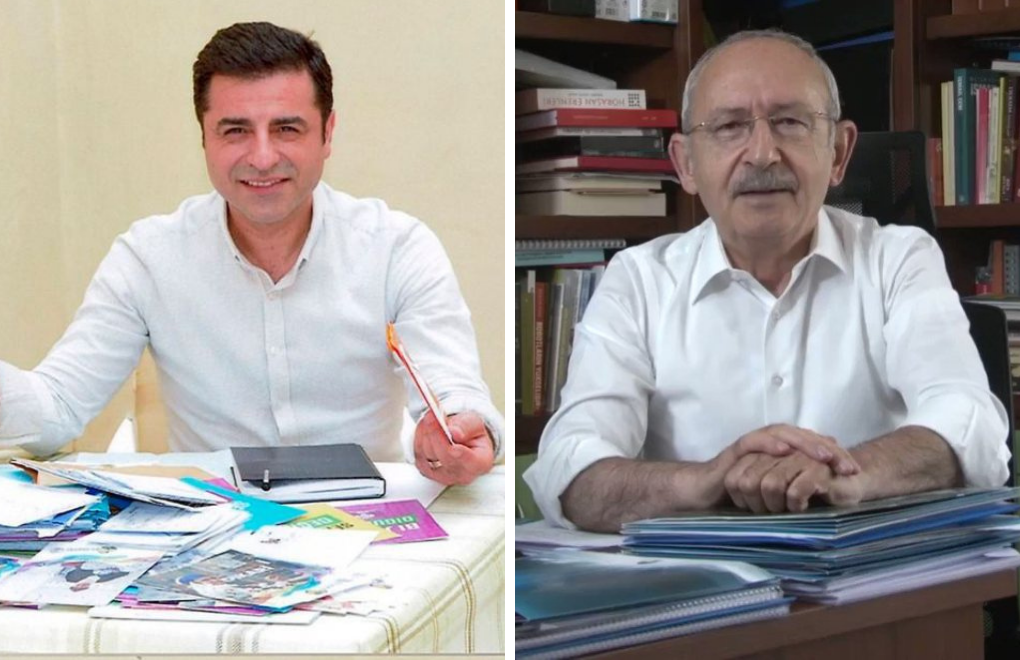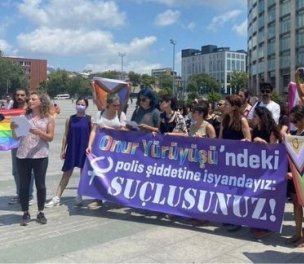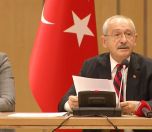Click to read the article in Turkish (1) (2)
Jailed Kurdish politician Selahattin Demirtaş has welcomed main opposition Republican People's Party (CHP) Chair Kemal Kılıçdaroğlu's recent move to "reconciliation" with different segments of society.
"Regardless of any tactical political calculations and discussions about alliances and elections, I attach great importance to this statement of Mr. Kılıçdaroğlu in terms of social reconciliation and internal peace of our country and I support it wholeheartedly," Demirtaş wrote in an article published in daily Evrensel today (November 18).
"Because we can't solve any of our problems permanently without confronting our past mistakes in a sincere, honest and courageous way," he wrote.
CLICK - HDP: Making amends requires confronting past mistakes
Releasing a video on his Twitter account on Saturday, Kılıçdaroğlu promised reconciliation and confronting the mistakes of all governments, including those of his party, which is the founding party of the republic.
He used the word "helalleşmek," which roughly means mutual forgiveness between two people. It originates from "helal" (halal), a word used to describe what is permissible in Islam.
At his party's parliamentary group meeting on Tuesday, Kılıçdaroğlu offered a list of segments of the public that are going to be reconciled with, including the Kurds, religious minorities and pious people.
Atrocities
During his speech, Kılıçdaroğlu recalled several atrocities in the country's history, including the 1937-1938 Dersim Massacre, 2011 Roboski Massacre, where 34 Kurdish civilians were killed by air raids, the 1942 Wealth Tax on the country's Christian and Jewish minorities, and the Maraş and Sivas massacres, which targeted the Alevis.
He also mentioned Ali İsmail Korkmaz, who lost his life after being beaten by government supporters during the 2013 Gezi Park protests and the headscarf ban in universities and the public sector, which had continued until the 2010s.
These statements were of "historic importance" and should be supported, according to Demirtaş.
"What we call reconciliation or confronting is not finding who was responsible for the past mistakes and punishing them. It is all segments guaranteeing one another and, of course, the state guaranteeing all segments that the past mistakes and tragedies will not happen again," he wrote. "It is accepting the existence and the results of the mistakes and being able to apologize sincerely."
"We owe the people an apology"
"We promise our people, the whole society of Turkey, that we will also confront our mistakes," he further wrote, noting that "we also owe the people an apology" despite being unlawfully imprisoned.
"Of course, the heavy crimes of the recent past will be subject to reckoning before the judiciary, but before that, we should take steps together for confronting [the past] and mutual forgiveness," Demirtaş wrote, concluding his article. (TP/VK)





as.jpg)



